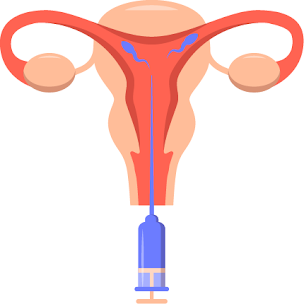Advantages of IUI:
Advantages of Intrauterine Insemination (IUI) include:
- Non-invasive: It is less invasive compared to other fertility treatments like IVF.
- Simple procedure: IUI is a straightforward procedure that does not require anesthesia.
- Increased sperm concentration: By placing sperm directly into the uterus, it enhances the chances of fertilization.
- Cost-effective: It is generally more affordable than more complex fertility treatments.
- Suitable for mild infertility: IUI can be effective for couples with mild male factor infertility or unexplained infertility.
- Natural conception process: It allows for fertilization to occur naturally within the woman’s body.
These advantages make IUI a viable option for couples looking to enhance their chances of conception with a less invasive approach.
Disadvantages of IUI
Treatment:
-
Multiple cycles may be needed: Success may require multiple IUI cycles, which can increase costs and emotional stress.
-
Ovulation issues: Timing is crucial, and if ovulation does not occur or timing is off, the procedure may not be successful.
-
Risk of multiple pregnancies: There is a slight risk of multiple pregnancies (twins or more), especially when fertility medications are used to stimulate ovulation.
-
Male infertility limitations: Severe male infertility issues, such as very low sperm count or poor sperm motility, may reduce the effectiveness of IUI.
-
Potential discomfort: Some women may experience mild discomfort or cramping during or after the procedure.
-
Not suitable for all infertility causes: Certain infertility issues, such as severe tubal damage or advanced maternal age, may not be effectively treated with IUI alone.
Understanding these potential drawbacks can help couples make informed decisions about their fertility treatment options.


